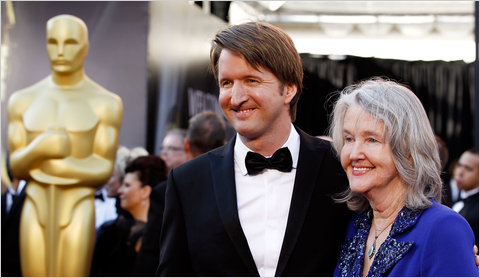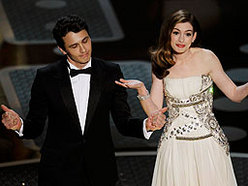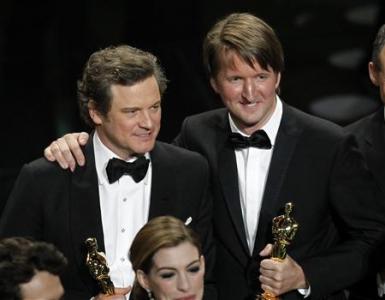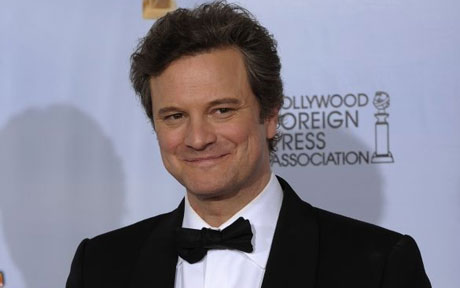The line “Based On a True Story” at the bottom of the movie poster apparently is not enough as a disclaimer. Some point out the twisted historicity in the movie “The King’s Speech”. In particular, it has altered the fact that Churchill had adamantly supported the reign of Edward VIII even after he had stated his intention to marry Wallis Simpson, and evaded the early appeasement of Hitler by the British monarchy.
My view is this: The King’s Speech is not a documentary, nor even a biopic. It is a film based on a true struggle in the life of King George VI before he became King to shortly afterwards. It spans from the closing of the Wembley Empire Exhibition in 1925 to the beginning of WWII in 1939. The focus is on a personal angle. It has taken some steps to dramatize the sequences which I must say are effective. While I agree the Churchill character in the movie could well be inconsistent with historical facts, I don’t see the production is making a political statement at all nor its intention to rewrite history. The climatic Speech at the end is a historical fact. By every measure, it is an exploration of one man’s internal conflicts and struggles, and how a trusting friendship between therapist and patient, and the support of a loving wife had helped him overcome insurmountable odds. Towards these ends, I think screenwriter David Seidler has done a marvellous job.
Further, as an ‘ex-colonial’, I don’t see the film as unfurling the Empire flag to flaunt past glory. If that was the intention, the Queen Mother would not have guarded her husband’s impediment as a painful secret all her life.
After watching the film, I came across the book. Yes, there’s a book called The King’s Speech: How One Man Saved The British Monarchy, written by Mark Logue and Peter Conradi. Mark Logue is the son of Lionel’s youngest child, Anthony. He is custodian of the Logue Archive. Conradi is an author and journalist.

The book is based on a treasure trove of family papers and diaries, letters between the King and Logue, and Lionel’s own notes on the therapy sessions, as well as photos, an invaluable source of background information for the film and a bridge of events therein. Mark Logue acted as the Logue Family Consultant for the production.
Overall, the film follows closely the facts found in Logue’s book when depicting the relationship of Logue and Bertie. Here are some facts:
It was to prepare for his Australian tour in 1927 that Bertie first went to Logue for help. The high point of the six-month world tour would be to open the new Commonwealth Parliament House in Canberra. Bertie diligently went to every appointment and practiced everyday the exercises assigned by Logue. Just between October 1926 to December 1927, the two had had eighty-two sessions. Many more would follow in the years ahead.
Here are some quotes from several who had contact with the pre-therapy Bertie. As a navel cadet, Bertie, or Johnson to secure secrecy as mentioned in the film, was ‘plagued by shyness’. Here’s an account:
One, Lieutenant F. J. Lambert, described the Prince as a ‘small’ red-faced youth with a stutter’, and adding ‘when he reported his boat to me he gave a sort of stutter and an explosion. I had no idea who he was and very nearly cursed him for spluttering at me.’ Another, Sub Lieutenant Hamilton, wrote of his charge: ‘Johnson is very well full of young life and gladness, but I can’t get a word out of him.’ (p. 55)
And the Duchess of York had her share of distress. Helena Bonham Carter had portrayed vividly scenes such as this:
According to one contemporary account, whenever he rose from the table to respond to a toast, she would grip the edge of the table until her knuckles were white for fear he would stutter and be unable to get a word out. This also further contributed to his nervousness which, in turn, led to outbursts of temper that only his wife was able to still. (p. 60)
And the disastrous Wembley speech at the beginning of the movie is a painful fact, an event witnessed by Logue and his son Laurie, who were among the spectators coincidentally. The closing ceremony of the Empire Exhibition in May 1925 was a live broadcast around the world. Before the event, Bertie wrote to the King his father apologetically:
I do hope I shall do it well. But I shall be very frightened as you have never heard me speak & the loudspeakers are apt to put one off as well. So I hope you will understand that I am bound to be more nervous than I usually am (p. 61)
The humiliation after that we can all see from Colin Firth’s realistic enactment. Here’s how the father put it, more generously than his usual harsher dealing with his son, nonetheless still biting:
Bertie got through his speech all right, but there were some long pauses. (p. 61)

Further, Bertie’s ill health and an operation on his ulcer had contributed to his physical and psychological torments for years to come. Logue knew it was a complex case and not merely simple speech impediment.
Bertie had problems pronouncing words beginning with ‘k’, ‘g’ or with repeated consonants. Logue’s system was to go through every one of the King’s speeches and if possible, replacing those with some other words. He would then:
mark up the text with suggested breathing points, and the King would start practising, again and again, until he got it right — often becoming extremely frustrated in the process.
By the time of his Coronation in May 1937, King George VI had greatly improved. All the war time speeches were evidence of the benefits of Logue’s therapy. I mention this just to quench the query of some who might think that the film had grossly exaggerated the speech impediment.
Actually, the King had delivered many speeches, and for everyone of them except those overseas, Logue was beside him, giving valuable support and pointers. To the credit of screenwriter Seidler, only three occasions are highlighted: The Wembley Empire Exhibition, the coronation preparation and the call to war, from which the film title aptly derived. Here I can see the choice of a writer skillful at his craft. As always, there is much more information out there that the sheer volume could clog, drag or smother. Seidler has wisely sifted and chosen the pivotal moments and built his script around them. As a result, we have fluency and the economy of words, or word pictures in this case.
Here’s a must-see BBC news clipof an interview with David Seidler, in which we can get a glimpse of an actual recording of KGVI pausing during his speech.
Lionel George Logue was born on February 26, 1880, in Adelaide, South Australia. His grandfather came to settle in Adelaide from Dublin, Ireland, in 1850, and opened up Logue’s Brewery. Since childhood, Lionel had been a prize-winner in elocution and excelled in ‘recitals’, the recitations of literary passages, a “popular form of entertainment in an era before television, radio or the cinema.”

Lionel, his wife Mertyle and their three boys Laurie, Valentine, and Anthony moved to England in February, 1924 after forty-one days at sea. First settled in modest lodgings, Lionel soon leased a place to begin his speech therapy consultation in 146 Harley Street, an address synonymous with medicine. However, it was still a major social and class barrier to overcome for the Duke of York to personally go over there for his treatment sessions:
Gernerally speaking, the lower the number and further south towads Cavendish Square, the more prestigious the address. Logue’s building was right up towards its northern end… (p.39)
Lionel’s wife, Mertyl Gruenert, had an ‘imposing’ physique and was several inches taller than Lionel. She was German. As the children grew up in England, they had all involved in the war effort, Laurie and Tony having served in the British army over in Africa. Now to those who challenge that German music is used in the climatic call to war speech and its subsequent scene, they could just as well say the Logue children fought against their mother’s countrymen. Nationalities diminish when the overall picture is one of atrocity and aggression.
And lastly, a fact that can be turned into fiction: Logue’s method remains a mystery. He had left no notes as to what exactly went on during his therapy sessions with Bertie. Such missing data have proven to be advantageous to Seidler, who has taken the liberty to create some lively montage in the film. Thanks to the lack of fact, we are entertained.
And, here’s one of the possible secrets: Logue’s tongue twisters. The next time you prepare for a public speaking engagement, warm up with this one:
“She sifted seven thick-stalked thistles through a strong thick sieve.”
***
The King’s Speech: How One Man Saved The British Monarchy by Mark Logue and Peter Conradi, published by Penguin Canada, 2010, 242 pages.
To read my review of the movie The King’s Speech, CLICK HERE.
To read my post Oscar Winners 2011 CLICK HERE.
CLICK HERE to view CBS 60 Minutes Overtime’s The Hidden Letters Behind “The King’s Speech”: Interview with Mark Logue and Colin Firth on the Logue Archive: the actual King’s Speech on Buckingham Palace letterhead, with Logue’s markings, handwritten letters between the King and Logue, and other personal papers and photos.
CLICK HERE to view CBS 60 Minutes’ The Story Behind “The King’s Speech”: Interview with Colin Firth, including his hometown in Hampshire, his career, his portrayal of KGVI, Geoffrey Rush, and the possible Oscar.









